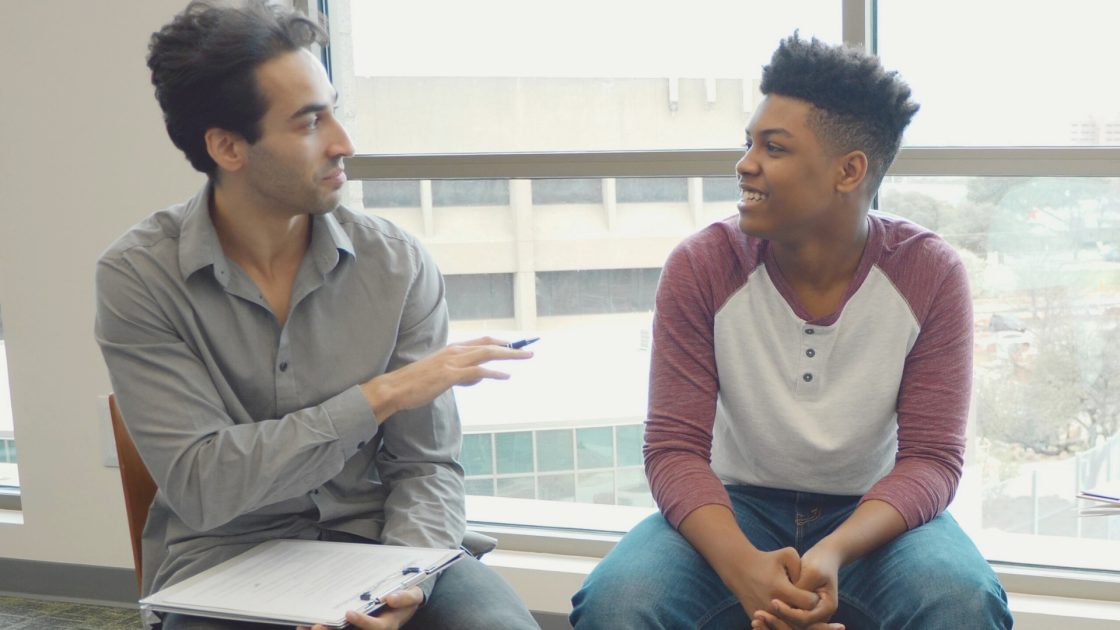My journey to an Autism diagnosis
Naomhán shares their journey to an autism diagnosis, reflecting on childhood struggles, autistic burnout, and the impact of finally getting answers.

I always felt different, and then I finally got an answer.
I knew from a young age that I was different, mainly because others treated me that way. In school, I was often picked on for being “annoying” but with time, I understood why. Now I see that other kids found it annoying when I always tried to answer or would do what I was told no matter what.
This was a very isolating experience as a child to know that something about you annoyed and frustrated others but not knowing what it was or how to change it.
Struggles with friendships
Making friends was difficult, but it became more noticeable as I got older and my parents could no longer arrange playdates. Looking back, I now realise some so-called friends had realised I was quite gullible before I did and used this against me.
Feeling used was horrible, and it led to me withdrawing from everyone because I was scared that this was how everyone saw me, as someone they could have around to laugh at without me realising. Again, I knew I felt different, but I didn’t understand why. I could tell that people thought I was odd, but not why.
The moment things started to make sense
Secondary school was even harder, and I felt lonely pretty much all the time. When I was 15, I went to a Foróige Leadership event where I met autistic people who seemed like me. Meeting other autistic people and other LGBTI+ people at Foróige was the first time I had had hope or imagined that anything would be okay in a very long time. I had an autistic family member, but we were very different, so it had never crossed my mind that I could also be autistic.
I think this is why the phrase ‘if you’ve met one autistic person, you have met one autistic person’ is helpful because we are all different people and each of us experiences autism differently.
That realisation did not make things any easier. My parents struggled to believe I could be autistic. They could not accept that they had missed something so significant. This was frustrating as, from my perspective, it was so clear and made so much sense that I could not understand why they could not see that.
Seeking help and facing barriers
As I got older, my struggles worsened. At 17, I stopped attending school completely. At 18, I was in Child and Adolescent Mental Health Services (CAHMS) because I was struggling so much with school and with life in general. I rarely left the house, and when I went anywhere, it was with my mam. To finish school, I transferred to a different school at 18.
I asked to be tested for autism whilst in CAMHS, but they refused. A psychologist told me it was highly unlikely that I was autistic. This frustrated me as I knew psychologists could diagnose autism. My experience in CAMHS was so grey; being there felt like a punishment for not being able to be “normal” and cope, and I resented it because I did not find it helpful in any way. I dreaded every appointment.
My case was further complicated by the fact that I was an adult in the child’s mental health system. I had been referred to CAMHS as a child, as my needs were too complex for Jigsaw, yet I wouldn’t have met the criteria for adult mental health services.
This gap between children’s and adult mental health services is a major issue. Turning 18 doesn’t make struggles disappear, but it often feels like the system expects you to manage on your own once you reach adulthood. Unfortunately, this gap does not seem to have gone away over the years, as I have learned by being refused services whilst needing help more than once. It is deeply upsetting how slow reform is moving and how stressful trying to navigate mental health services is.
Discovering autistic burnout
When I was 19 and in college, I researched autism more deeply. I realised that what a GP had dismissed as general burnout was actually autistic burnout, a term that was still relatively unknown at the time.
Now I understand that after years of trying my best and being in an environment that was so incredibly overwhelming to me had led to this autistic burnout. Eventually, I reached a breaking point where even small tasks felt impossible. This explained why I struggled to leave the house or do everyday things. Finding out that this was a known phenomenon was a bit of relief as it made me feel slightly less alone in what I had been through.
Over the years, I had been browsing the AsIAm website, which I found comforting. Eventually, I realised my only option was to seek a private diagnosis. I believed a formal diagnosis would help me access more support in college, where I was struggling.
Getting my autism diagnosis
College was overwhelming, especially when in-person classes resumed in my second year. I had entered through the DARE scheme, which provided some support, but I knew I would benefit from occupational therapy, something I needed a formal autism diagnosis to access.
Just after my 20th birthday, I was officially diagnosed as autistic.
That diagnosis brought relief. I finally understood why everyday tasks were so much harder for me than for others.
I reflected a lot after my diagnosis, and it helped me feel a bit better. I made peace with the fact that I am different and my path is different. Sometimes, some things will take me longer, and that is okay
Finding purpose through advocacy
My struggles accessing therapy, support for being transgender and also getting an autism diagnosis ignited my passion for social justice.
I studied social justice and sociology in college, and through this, I interned as a policy officer at AsIAm. It was the best experience I have ever had in a workplace. I learnt so much during that time and met so many amazing and passionate people that it truly was a life-shaping experience.
Although I had touched on children’s rights in college, my time at AsIAm deepened my understanding of these issues. It helped me realise that I wanted to work in this field in the future.
Moving forward with my diagnosis
My autism diagnosis changed my life, but it did not change overnight. I still try to push myself too hard sometimes or go beyond my limits. Unfortunately, in the society we live in, this is rewarded.
I find talk therapy helpful as it helps me process my feelings and decide what I need to do next.
Occupational therapy has also really helped me manage many small challenges at once. Having professional support helps me break things down and cope better.
As I approach the end of my master’s degree, I think about the disability employment gap a lot. Although a tremendous amount of work is being done to change this, the reality is that many disabled people struggle to find work. Some employers don’t know how to support disabled employees, while others are unwilling to do so.
This makes me worry about the future a lot, and I worry about other disabled people, too, who do not have the same privileges I do, especially those who can’t afford a private diagnosis to access the help they need.
Lessons from my autism journey
If there’s one thing I have learned, it’s that it’s okay to go at your own pace. There is no shame in taking longer to reach certain milestones. Try not to compare yourself to others, as we are all incredibly different people.
Asking for help and needing support systems is not a weakness; it’s a way to make life more manageable.
Finding out I am autistic has been a long journey, and I wish I had received answers and support sooner. That’s why I want to work in children’s rights and the disability sector so that no one has to feel so alone for just being themselves.
Every child deserves to have their needs met and to receive the supports they need in a timely manner. Most importantly, they deserve the chance to simply be children and to enjoy their childhood. It is seeing the joy or even contentedness of other people engaging with services and activities alongside other autistic people that drives me to want to continue on my path.
Feeling overwhelmed and want to talk to someone?
- Get anonymous support 24/7 with our text message support service
- Connect with a trained volunteer who will listen to you, and help you to move forward feeling better
- Whatsapp us now or free-text SPUNOUT to 50808 to begin.
- Find out more about our text message support service
If you are a customer of the 48 or An Post network or cannot get through using the ‘50808’ short code please text HELLO to 086 1800 280 (standard message rates may apply). Some smaller networks do not support short codes like ‘50808’.






